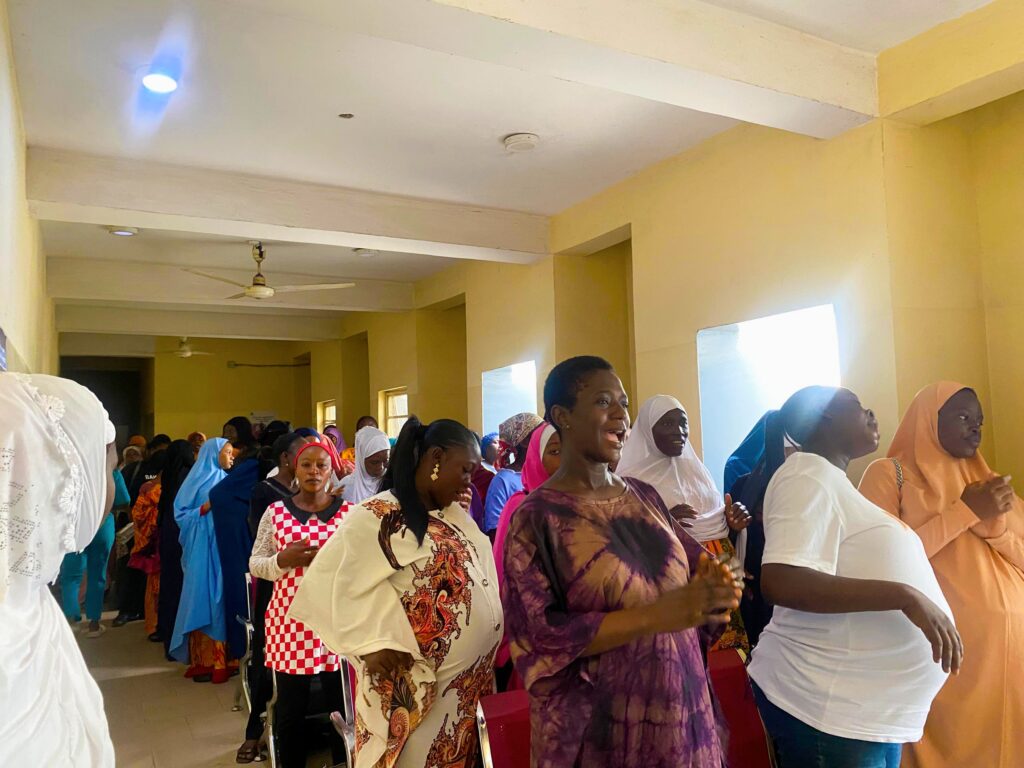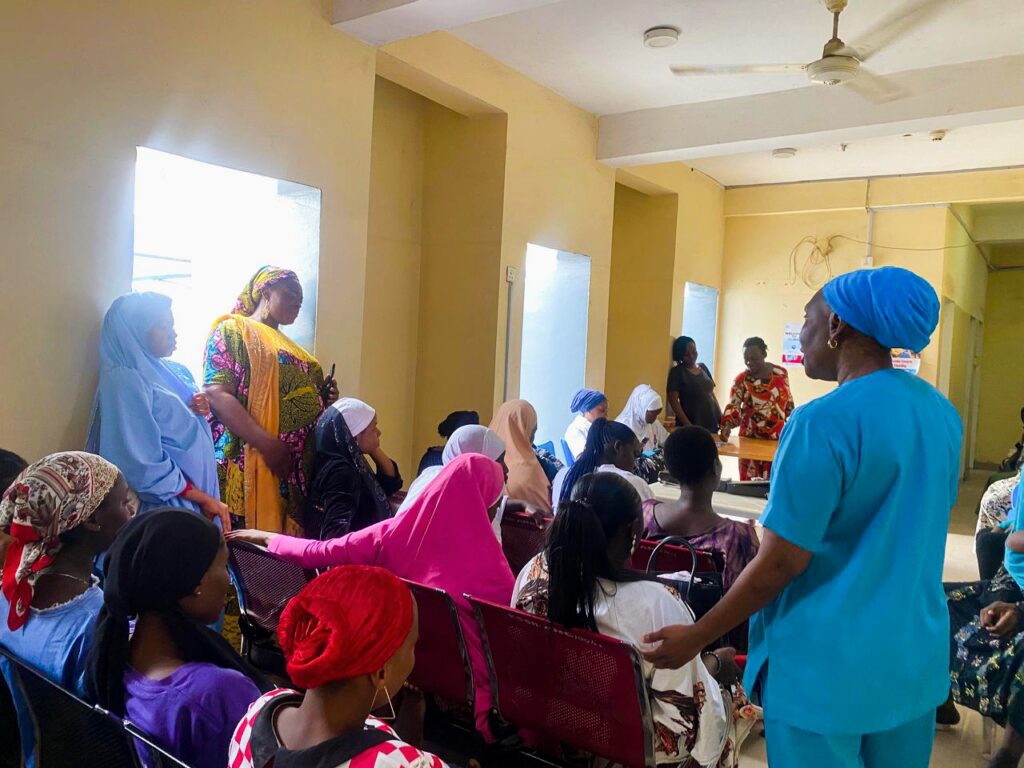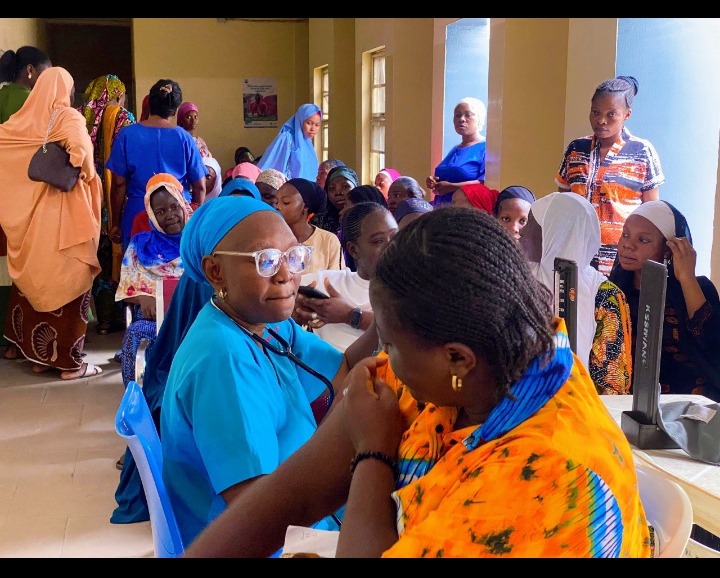Breastfeeding in Kogi: Where Challenges Meet Courage and Connection
In Kogi’s antenatal wards, whispers of struggle and triumph weave through breastfeeding journeys. Mothers like Blessing and Oyiza navigate pain, myths, and societal pressures amidst Nigeria’s 29% exclusive breastfeeding rate. Amidst challenges, campaigns and support systems emerge, nurturing bonds between mothers and babies, shaping healthier futures in the heart of Kogi.
By Tosin Toluwaloju
Kogi, Nigeria – The antenatal ward at Kogi State Specialist Hospital in Lokoja bustles with laughter and movement. Expectant mothers cradle their swollen bellies or wipe away sweat as they sway to nurse-led songs infused with playful chants of fruit names. These melodies double as light aerobics before the day’s health talk. When Nurse Onyeche Egwu steps forward, the room quiets.
“‘Exclusive breastfeeding’ means breastfeeding your baby with only breast milk,” she says clearly. “No water, no agbo. Strictly breast milk alone for six months.” The women murmur among themselves—some nod, others exchange knowing looks. One speaks up: “It’s hard oo. It’s not easy.”
Nurse Egwu smiles knowingly. “Yes, it’s not easy. But it’s the best gift you can give your child. That first yellowish milk, colostrum, is full of antibodies that protect your baby from disease or infection.” Her words capture the delicate balance of exclusive breastfeeding (EBF) in Nigeria—awareness on one hand, persistent challenges on the other.

Personal Journeys with Exclusive Breastfeeding
For Blessing James, exclusive breastfeeding is lived experience. “Exclusive breastfeeding is the best type of breastfeeding,” she said. “Even though it has its own challenges, the advantages are more.” Her child thrived on exclusive breastfeeding, rarely falling sick compared to other babies. Yet she was honest about the toll on her body: “As the mother, you’ll be eating always. You must eat well.”
Ibrahim Unni is on a journey of learning and second chances. “With my first baby, I used things like agbo. But this time, I want to do exclusive breastfeeding.” Her decision stemmed from reflection: “The first time, my baby wasn’t as sharp as I wanted.” Yet Ibrahim revealed a hidden barrier: lack of family support. “I don’t have much family support. But I want to try my best.”
Mary’s words carried the weight of struggle. “Exclusive breastfeeding is very hard… It’s only God that will help us.” Yet she testified to its benefits: “The child will be healthy… You’ll notice the difference.”
A Working Mother’s Experience
For Oyiza Bello, a media professional and mother, exclusive breastfeeding was both a health decision and a deeply personal journey. “When I cradled my baby… something changed inside me.” Her determination was tested by reality—mastitis, returning to work—but support from her husband and family made the difference. “The rewards were beyond measure… But I know many women don’t have it that easy.”

The Data: Progress and Challenges
Nigeria struggles with exclusive breastfeeding rates. Only 29% of infants are exclusively breastfed for the first six months (UNICEF), below the 50% global target (WHO). In Kogi State, the rate is 29.5%. Dr. Feyisayo Oyeleke, a consultant pediatrician, states there’s awareness but a “huge gap in practice.”
Dr. Oyeleke explains the benefits of exclusive breastfeeding:
- “Perfect nutrition for infants.”
- “Antibodies protect against pneumonia, diarrhea…”
- “Supports brain development and emotional bonding.”
- “Protects mothers from breast and ovarian cancers.”
Her concern is the gap between knowledge and action: “Mothers still supplement with water or formula too early… Some discard colostrum because they believe it is dirty. These practices endanger the child.”
Physical and Emotional Realities
Mothers face obstacles like latching pain, biting as babies grow teeth, engorgement, and mastitis. “The pain can be severe,” says Blessing. “I cried some nights.” The emotional toll is heavy: “You feed at night, you feed during the day, you hardly sleep. It drains you,” says Oyiza.
Dr. Oyeleke notes, “Mothers need encouragement. Many blame themselves when they struggle. But the truth is, it takes support, not just knowledge.”

Myths and Misconceptions
Mrs. Adeyemi Funmilola, Assistant Director of Nutrition, lists common myths: “Some women believe breast size affects milk production. Others think babies need water in hot weather… Many think if the mother is not eating well, her milk is bad.” She stresses these myths “stop women from doing what is best for their babies.”
Efforts to Support Mothers
The Kogi State Ministry of Health promotes exclusive breastfeeding through campaigns and antenatal classes with practical demonstrations. Conditional Cash Transfers help mothers afford nutritious food. Collaboration with Agriculture trains women in home gardening. Policy changes include six months maternity leave and 14 days paternity leave. Plans for daycare centers within ministries are underway.
Mrs. Funmilola stresses that “When fathers are present and supportive, it is a key way to support nursing mothers who struggle.”





Comments